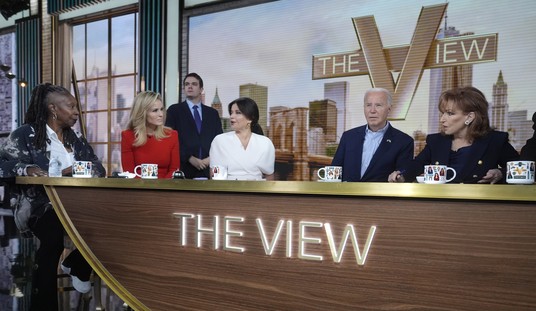In case Al Qaeda, its cohorts, and their sponsors lack for summer reading, WikiLeaks — as we all know by now — has just tipped out onto the web a trove of classified U.S. military documents on the war in Afghanistan. As far as there’s an upside to this, some of the concerns described in the documents may help focus attention on the problem of nuclear-armed Pakistan’s double-dealing in fostering Islamist terrorism, while receiving huge handouts from the U.S. in its role as an ally. Tunku Varadarajan has an impassioned piece on this in the Daily Beast, and the New York Times weighs in on the same theme.
But in the larger picture, such leaks are routinely cherry-picked by the U.S. media, and in turn by the world media, for anything damning to the U.S. Never mind the context, or the terrorist assaults and continuing threats that have impelled America into this war. Not only will America’s enemies now enjoy a chance to cull the leaked documents for any useful intelligence, but odds are that this huge data dump will become the latest ammo in the hands of the Blame-America-First contingent.
WikiLeaks founder Julian Assange is right now all over the media, explaining that this posting of tens of thousands of classified U.S. documents is all about “transparency” and ending the abuses of war. In a video clip posted on the web site of the Guardian, Assange pats himself on the back that “It is the work of good journalism to take on powerful abusers.”
Amen, Mr. Assange. So when does WikiLeaks get serious about that noble mission? Leaking American secrets is no great trick — it’s a regular event; staple fare at The New Yorker, The New York Times, or pick-your-source. America is where the in-house conversations of Gen. Stanley McChrystal are reported in Rolling Stone, and “Top Secret America” is featured on page one — with interactive search functions — by the Washington Post.
What’s rather more difficult, for those aspiring to confer transparency upon abuses of power, is to get hold of the document troves of America’s enemies — a collection of tyrants and terrorists who respond to unwanted leaks not simply by trying to spin, deny, or appease, but by threatening, jailing or murdering anyone discovered disclosing secrets to the world public. That makes it a lot more difficult to pry documents from their archives; but it also means that any success could be of extraordinary value.
If Assange is serious about his ethical mission, here’s a wish list for some additional leaks that might just bring more balance to the WikiLeaks pursuit of transparency:
1) The Iranian files. Lots of scope here for greater transparency. Can WikiLeaks bring us the internal correspondence of the Iranian Revolutionary Guard Corps? The files of the Iranian nuclear program? The motherlode of records that presumably exists, somewhere, on the provision of money and weapons to Iran’s terrorist clients such as Hamas and Hezbollah?
2) The Taliban/Al Qaeda Recent Hard Drives. We’re seeing a heaping portion of American war documents. The Taliban and Al Qaeda may be less prolific in their record-keeping, but they do keep records. Remember that computer hard-drive the Wall Street Journal came up with in Kabul in 2001? When will WikiLeaks bring us the 2010 data dump of terrorist hard drives galore? If the idea is to expose the realities of this war, where’s the rest of the picture?
3) The Kim Jong Il Chronicles. Not easy, granted. But North Korea is a festering threat to global security, dealing missiles and nuclear technology into the Middle East. While this is a hard nut to crack, there are North Korean defectors out there, and leads worth following for those with the resources to go all-out pursuing documentation. Fascinating items have turned up here and there over the few years, in congressional investigations and reports by private think tanks. Please! — find and show us more.
4) The Network News — and we’re not talking here about Katie Couric. How about a full set of documents on the Syrian-North Korean networks that went into building a clandestine nuclear reactor on the Euphrates? Or recent records of secret communications among China, Russia, North Korea, Iran, Pakistan, Turkey, Syria and Venezuela that might bring a little more transparency to the underworld of networking — in both weapons and diplomatic games — related to missiles and nuclear proliferation?
Those are just a few obvious suggestions for the wish list, if WikiLeaks is serious about its commitment to exposing abuses of power. Not as easy to get hold of as classified U.S. documents, but of far greater potential value, if the real aim is to expose what ails the modern world.









Join the conversation as a VIP Member